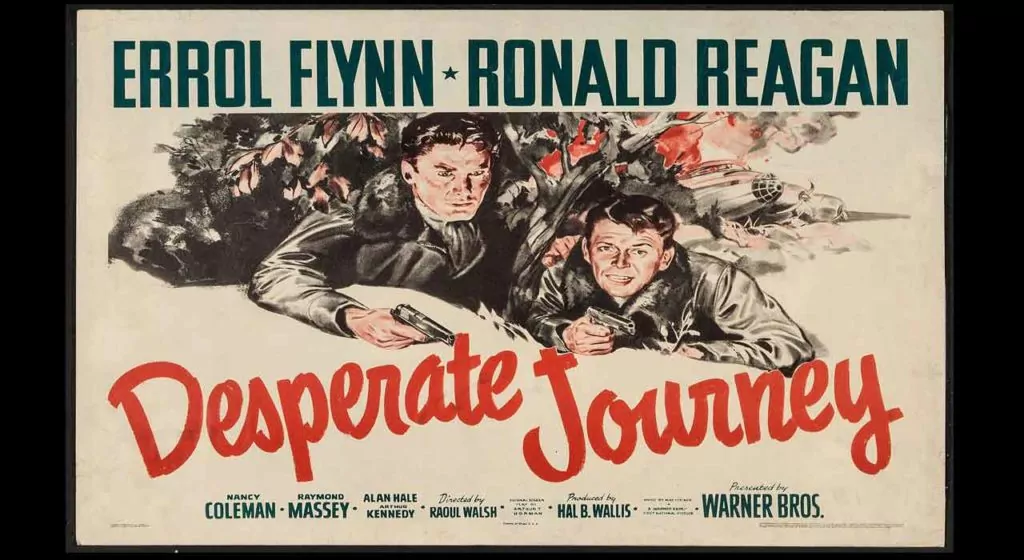Drama / Mystery
1942 / 109 minutes
RATING: 7/10
This is World War II as seen from the other side of the ocean. Barry Kane is one of the hundreds of employees at an airplane factory in Glendale, California, and when the plant suspiciously burns down, he becomes one of the chief suspects. Barry knows he’s innocent, and thinks the real saboteur might be a man named Fry, who he bumped into just before the fire started, But Fry doesn’t seem to exist – the factory never employed anyone by that name – which makes Barry look even more suspicious.
With the authorities looking in the wrong direction, Barry decides he has to track Fry down himself and takes off. He has only one key clue, and to make it even more difficult, police departments across the country are now on the lookout for him!
Love-interest Patricia Martin is a girl he meets along the way, and whose blind uncle somehow knows that Barry is trustworthy, no matter what the police might think. Patricia isn’t quite so sure, and seems as likely to turn Barry in as to help him. Together they follow the clues and cross the country, uncovering a network of fifth columnists – Nazi sympathizers and agents amongst the highest echelons of American society. But now that they know who’s responsible, will anyone believe them?
This cast does a solid job, and while there’s no one you’ll recognize, the director is a name you’ll know: Alfred Hitchcock. He always brings the stark, dramatic shots, of course, but also a bit of oddness. His quirkiness shows up in this picture when Barry and Patricia hitchhike a ride on a circus caravan and hide out among the circus sideshow performers – a midget, bearded lady, set of Siamese Twins, and more – who end up arguing it out about whether they’ll help the pair.
And this being an Alfred Hitchcock film, we can expect the director to make a brief appearance on screen – look for his cameo just after the one-hour mark.
Cautions
The caution here is also a feature: this is a film for discussion, not just consumption, and the conversation will be of a Romans 13 sort (or more specifically, Rom. 13:1-7) – when should we, and when shouldn’t we listen to the appointed authorities? Barry is fleeing the police because if he doesn’t, the true saboteur will get away, and because the police, however unwittingly, are aiding the fifth columnists. But while his motivation is clear, some of the people who choose to help him are defying those same authorities for tenuous reasons. Patricia’s uncle, for example, trusts Barry based on little more than gut instinct.
Conclusion
This was already well into development before Japan’s 1941, Dec. 7 bombing of Pearl Harbor pushed the United States into World War II. That might be why the focus was on the homefront – American soldiers weren’t fighting in the trenches yet when the script was being written.Regardless, Hitchcock wanted his audience to know the fight was already going on, behind the scenes, right on American soil.
This is an enjoyable film, but not the sort you’d pitch folks who aren’t already up for black-and-white films. Start them on other World War II fare like Casablanca, The SeaHawk, and Desperate Journey instead, and if they love those, then they’ll be more inclined to enjoy Saboteur for the great war film it is.












